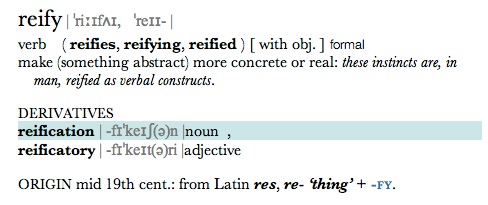Occasionally I cop a wee bit of chastisement for being ‘reasonable’ — being open to hearing other people’s expression of their opinion without responding with immediate and trenchant denigration; acting as less of a ‘culture warrior’ than some of those who seem to try to frame any debate as a hillbilly feud, responding with knee-jerk ‘sledging’ or abuse.
“Could they be right?” Or “Have they got a point?” Or, at my best: “Ah, good. We see that differently. I wonder why that is?” These are my thoughts when confronted with alternative narratives or views of reality. (Best title of a book about how the news media works: Bending Reality.)
Taking such an approach doesn’t, by necessity, condemn one as “wishy washy” or a fence sitter, in my view, despite that cavil being easily deployed. I have come to detest reflexive hatreds and expressions of enmity, as I have expressed before in relation to political propagandists.
The lazy non-thought that sees much debate du jour easily and carelessly recognized (viz. ‘I’ve heard that line before’) and therefore easily discarded, or filtered and filed into traditional vectors: left vs right, bosses vs unions, tax vs spend, Luddites vs Progress … or any of the myriad other dimensions along which we routinely divide is seductive. But it’s usually unilluminating, akin to patrolling our psychological borders and castle battlements. (See JFK’s wry reference to ‘the comfort of opinion without the discomfort of thought’.)
Sure, there are times when a debate does naturally fall along a dimension like that — e.g. Charter schools, state asset sales, cuts to public broadcasting, or private prisons — but it’s nonsense (and wasteful) to affect to consign those with whom one disagrees (even those with whom one agrees about other things) to a no-good-thing-can-come-from-there scrap heap.
So, why bother with debate?
I’m used to rebutting arguments (third speaker in the school debating team) believe me, and can sometimes quite enjoy a debate or hot discussion. But, you may ask, why bother to argue, or to reason together with those whom we already know we disagree? Why reinvent the wheel? Why? Let me briefly give you my view, if you have time.
It’s because I have seen in debate — genuine debate, not just ritual or going through the motions, or falling into rank behind a ‘champion’ — that sometimes the thesis-antithesis-synthesis triangulation process actually can and does lead us somewhere … new! (gasp)
Instead of loyally barking in unison a version of Who let the dogs out? to protect our patch, or barrack for our leader or leader-in-waiting, why not try to dig deeper, and look for common ground? In politics, compromise is simultaneously needed and despised.
If we can lay down our received ideology and preconceived judgements about others’ values long enough to LISTEN TO THEM we may actually learn something worthwhile about how their and our interests can be met — and not sit there scanning for the weaknesses in their argument.
Try it. Happy New Year.
– P
PS: On the other hand, in matters that are unimportant, this applies: 😉
Don’t give a shit about what people think of your honest opinion. If you think Android is better than iOS, Windows better than Mac, and Nikon better than Canon — so be it. You’d be wrong, but at least you’re standing for what you believe in, and that’s more important.
From Ben Brooks, The Brooks Review Thirty.
Update: This previous post may interest you: How to have a FAIR argument



By coincidence, Andrew O’Sullivan has just written this about polarization … and culture war:
How Polarization Deceives http://andrewsullivan.thedailybeast.com/2013/01/caricaturing-your-political-allies.html
Update:
O’Sullivan is being even handed in his description of the caricaturisation left vs right and vice versa. Good on him.
He’s right, of course, about ‘the intensity of the tribalism’ … on the same page that Cameron Slater quoted from my blog as ‘a cogent observation’ then called me ‘a sanctimonious twat’ http://www.thepaepae.com/a-small-update-now-i-am-a-sanctimonious-twat-too-apparently/26719/ someone else called me a ‘fucking mega pinko’. 😉
I guess that’s more badass than “far-left” — neither of which is accurate about me. But, hey, nice example of how the polarisation works. (Nice way to stop thinking.)